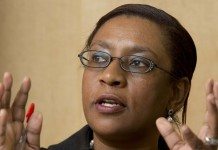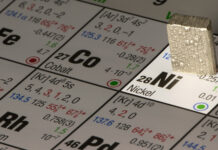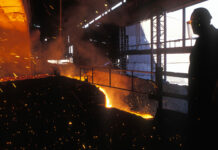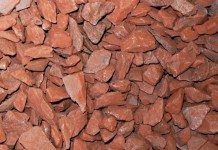
[miningmx.com] — SOUTH Africa’s largest steel maker ArcelorMittal SA posted a steep rise in profits for the first quarter of the year in which it will challenge its key iron ore provider in a dispute over the terminated supply of cheap feedstock.
ArcelorMittal’s results did not reflect the higher prices Anglo American’s 63% held subsidiary Kumba Iron Ore said would become effective from 1 March.
Kumba has said it will continue invoicing ArcelorMittal at the old cost plus three percent level until the dispute has been settled by arbitrators and, if the decision goes in Kumba’s favour, then the steel maker must pay the difference between the lower price and the commercial terms backdated to the start of March.
Kumba subsidiary Sishen Iron Ore Company (SIOC) has sent ArcelorMittal an invoice showing the difference between the export parity price of iron ore and the cost plus three percent price. The arbitration process has been set in motion.
Under the old agreement, ArcelorMittal paid around R220/tonne for its iron ore. This will now rise to around R900/tonne.
At the heart of the dispute lies the failure by ArcelorMittal to convert its old-order mining rights over a 21.4% stake in the Sishen iron ore mine to new-order rights by end-April 2009. These rights reverted back to the state. Kumba used this event as the reason for terminating the cost plus three percent agreement to supply 6.25 million tonnes of ore to Arcelor, which is about 20% of the mine’s production.
“Results are good (prices, volumes and margins up), earnings are better than expected, outlook is strong, but all is overshadowed by the ongoing iron ore supply debacle,” Investec Securities said in a note. “Stock should move higher, but uncertainty with respect to Kumba arbitration should keep it in a tight range.”
Nonkululeko Nyembezi-Heita, ArcelorMittal CEO, said the controlling shareholder ArcelorMittal, the world’s largest steel producer, fully backed the South African company in its battle with Kumba. “They are highly aggrieved at what has happened,” she said, adding they would take “robust steps” to protect the agreement.
ArcelorMittal does not dispute the fact that it did not convert it rights, but it is awaiting the outcome of a review process initiated by the Department of Mineral Resources after a protest by Kumba, who lost out securing a mining right over the 21.4% when the department awarded a prospecting right over it to an unknown, politically linked group called Imperial Crown Trading 289.
“We thought it prudent to wait for the outcome of that review before we launch a legal process to recover the rights,” Nyembezi-Heita said on a conference call.
ArcelorMittal will from 1 May impose a R600/tonne or $80/tonne levy on the steel it sells to make provision for the higher iron ore costs, but it has said it will pay this money back to customers if the arbitration ruling goes in its favour. This could be some years off.
The operation most at risk from the higher iron ore price is the Saldanha plant, which is primarily an export operation. Nyembezi-Heita said a decision would be made in the third quarter about its future, but she warned it would not be profitable in the second quarter at current steel prices.
In the three months to end-March, ArcelorMittal recorded headline profit of R748m, up from a R469m profit in the December quarter and a R237m loss in the first quarter of last year when the effects of the global economic crisis were felt.
“This was achieved as a result of an improvement in trading conditions, good cost containment and lower raw material prices compared to the first quarter last year,” ArcelorMittal said in a statement.
Looking ahead, it said: “Financial results for the second quarter of 2010 are expected to show some improvement on the first quarter mainly due to higher expected sales volumes and prices offset by higher raw material input costs as well as electricity and rail tariffs.”
ArcelorMittal will let the domestic market know on Friday, the end of March, what it will do with the base price of steel, which, given the firmer international prices, are likely to rise, Nyembezi-Heita said.
Total steel sales for first quarter 2010 rose by a third year-on-year to 1.3 million tonnes. Sales were up 15% quarter-on-quarter.
Domestic sales climbed eight percent against the December quarter and are expected to rise again in the second quarter, driven by lower interest rates.
Costs fell by nearly one third from a year earlier because of lower prices for coal, scrap and alloys, with increased steel volumes also driving costs down, it said.
ArcelorMittal is contesting a number of cases before the competition authorities. The Competition Commission has referred ArcelorMittal and four other steel makers to the Tribunal for alleged collusion and price fixing of some long steel products.
The commission recommended ArcelorMittal be fined 10% of its 2008 turnover.
“The parties and the Commission are engaged in preliminary applications regarding access to documents. The matter continues,” ArcelorMittal said.
A second case before the tribunal was brought by Barnes Fencing Industries, alleging price and payment discrimination on wire rod. A date for the hearing has not yet been set.











